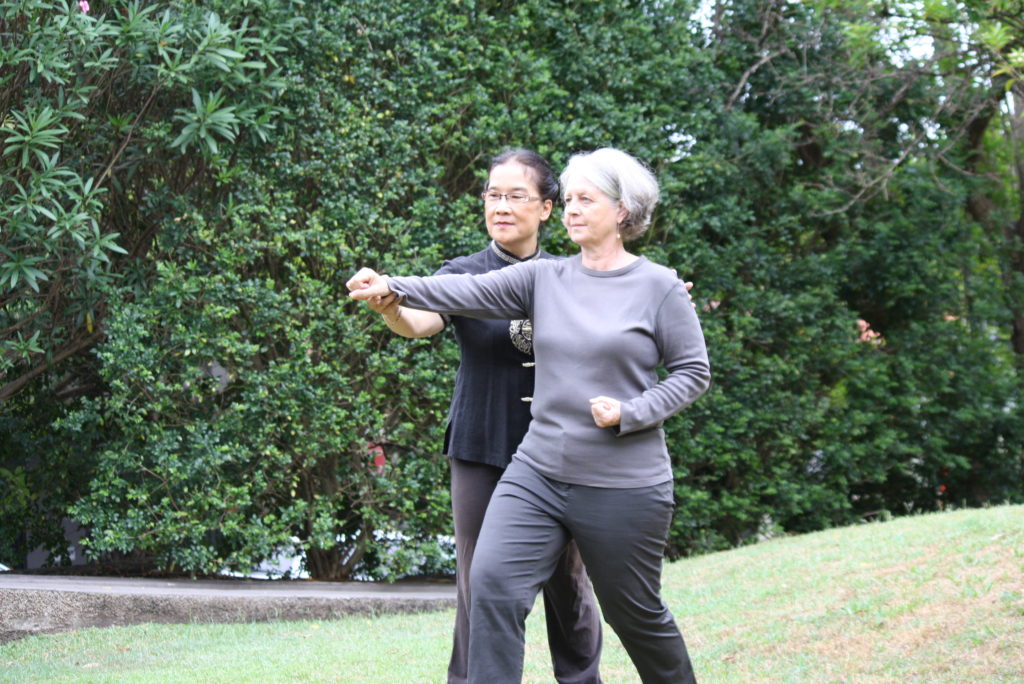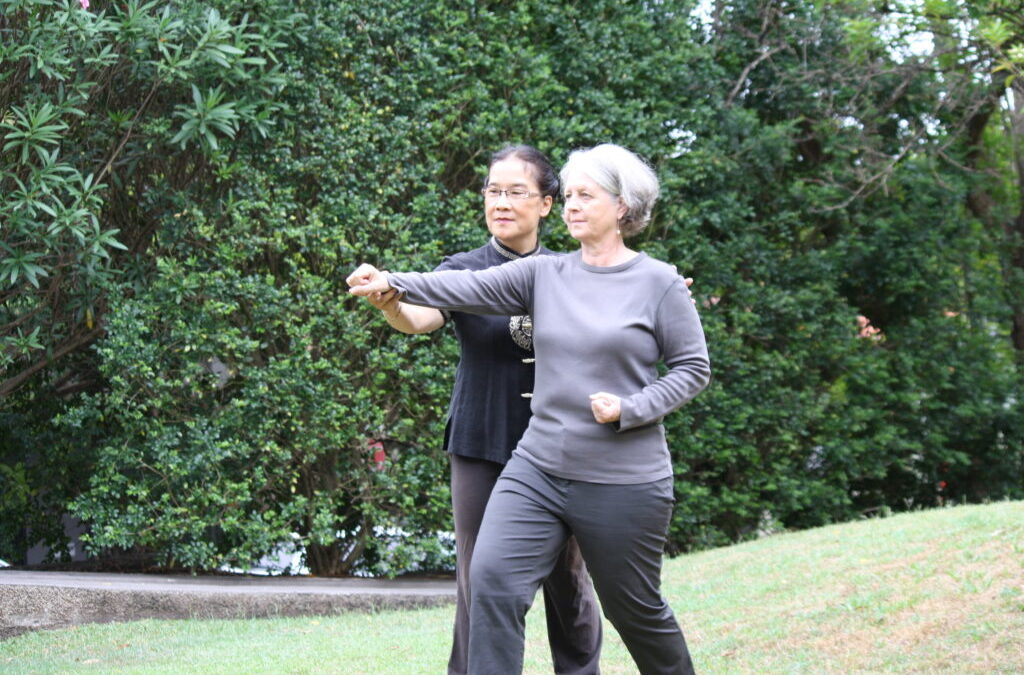
Taiji Quan (Tai Chi) and Qi Gong are ancient Chinese exercises which emphasise the unity of mind and body. They involve slow, circular movements with ascending, descending, opening and closing actions as a natural motion of Qi flow in the body, mental concentration, breath control and relaxation – without losing firmness.
Taiji means Yin Yang and is an exercise based on the theory of Yin and Yang philosophy using movement to balance their energy.
Taiji Quan Yin and Yang movements centre on the Dan Tian (the Dan Tian is located under the navel, inside the lower abdomen and is the Qi centre) and involve mental and physical concentration, dynamic and static, empty and full. Ascending, descending, opening and closing – from the Dan Tian. Forward and backward, circling with rotation and revolution. Firm and soft. The whole body is connected as a whole. The movements are coordinated and coherent. The principles of Yin and Yang are embodied – they are opposite and restricted, interdependent, ebb and flow and transform.
Qi Gong is an energy exercise based on the theory of TCM. It includes health and medical Qi Gong. Qi means energy. In TCM, Qi is the most essential substance to constitute the human body and sustain. Its life activity. It is described as life energy and a life force. It is the most important function of the body and without it we could not exist. Gong means ability, skill, the work or exercise. Qi Gong is a mental and physical practising skill that integrates the body’s movements, breath and mind together in a natural manner.
Taiji Quan and Qi Gong are energy exercises, and the difference between them is that Taiji Quan is also used for defence.
Taiji Quan and Qi Gong can help promote and regulate the flow of energy and blood circulation. They dredge the meridians, nourish the organs, strengthen the muscles, tendons and bones. Also, they prevent illness and help to elevate the body’s self-potential and enhance physical and mental health. All these serve to maintain our quality of life and improve longevity.
written by Angela Tian Zhu 7th May 2022





